Getting Dirty
What if getting “dirty” is actually good for your health?
You’ve probably heard the saying “A little dirt don’t hurt!” Perhaps you’ve heard that running around outside barefoot can actually benefit your immune system, or that getting exposed to pet dander and farm animals can help prevent allergies. Thoughts like these became popularized through a theory called the hygiene hypothesis. But is there any scientific truth behind these “go outside and get dirty” concepts? 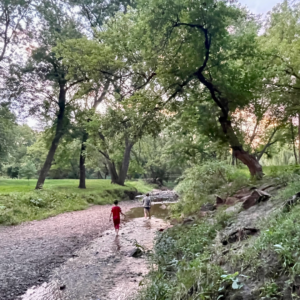
The Hygiene Hypothesis
The origin of the hygiene hypothesis dates back to 1989 with immunologist and professor David P. Strachan. He proposed that the lower occurrence of infections during early childhood in the 20th century possibly explains the rise in allergic diseases like asthma and hay fever. Furthermore, this theory claims that exposure to certain microbial factors, including pathogens, can actually help develop the immune system and prevent future disease. 
In this modern day, developed countries like the United States have increased sanitation, better water supply, and children with overall fewer infections. Even so, allergies and immune disorders continue to increase significantly. In fact, since the 1950s, rates of disorders such as Crohn’s disease, type 1 diabetes, asthma, and food allergies have skyrocketed by 300% or more. From these statistics alone, it’s no wonder theories like the hygiene hypothesis exist in an attempt to explain the surge of these disorders.
Learning from the Amish
To better understand the hygiene hypothesis, let’s look at a real-life example. One way to try and understand why people are suffering from more allergies in the United States is by finding a population that has fewer allergies in the same country. What population is this? The Amish living in Indiana! Here, the Amish practice farming the way their ancestors did hundreds of years ago. For instance, they use horses and buggies to get around, as well as for pulling plows on the farms. Even more, they drink raw unpasteurized milk.
Studies have tried to confirm whether or not Amish children actually have fewer allergies than children living in a more suburban environment. In one study, over 100 Amish children received skin tests. Then, the Amish skin tests were compared to skin tests done on suburban children. In the study’s results, almost 50% of suburban children had positive skin tests (indicating allergies) while only 7% of Amish children had a positive skin test. 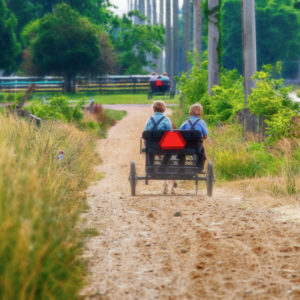
Generally, researchers believe it is early life exposures that protect the Amish from the development of allergies. Pregnant mothers work in the barn on a daily basis. Likewise, the children spend time in the barn at an early age and are around large farm animals daily. Meanwhile, all members of the family drink raw milk. It is all these factors coming together that make some researchers believe the Amish have fewer allergies and asthma cases. Nonetheless, research is still expanding to look at even more detailed aspects of Amish farm life and how it leads to protection from allergies.
Research on Playing in a Natural Soil Environment
A study in Finland looked to see if switching a child’s playground substrate from gravel to a natural forest floor could improve their immune systems through exposure to a greater variety of skin and gut bacteria. 75 children between three and five years old at 10 daycare centers in Finland were studied for one month. In four of the daycare centers, gravel playgrounds were made into a field of forest floor, soil, and grasses. The other six daycare centers were control groups with three centers having the forest floor setting already and three centers that kept the gravel. 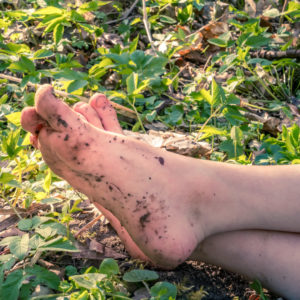
After one month, researchers collected blood, skin, and fecal samples from all the children. The scientists found a dramatic difference in the microbiota of the children that went from a gravel playground to a natural soil playground. In only one month, their microbiota shifted to similar microbiomes of the children that already played in a natural setting. Moreover, a change was found in the children’s immune systems. The same children that went from gravel to natural playground substrates developed a higher ratio of anti-inflammatory proteins in their blood. This indicates that their immune system is in good shape!
Critics of the Hygiene Hypothesis
As with most scientific hypotheses, there are always critics (and that’s a good thing!). The hygiene hypothesis generates plenty of controversies, specifically with the use of the term ‘hygiene.’ Critics believe the label is overly simplistic. They argue that it may discourage people from necessary hygienic practices like disinfecting after handling raw meat or being cautious of germs when having the flu or other contagious illnesses. Therefore, some scientists believe that the hygiene hypothesis should include advocating for “targeted hygiene” to make sure people don’t take the “getting dirty” concept too far.
Other names for improving this theory include the biodiversity hypothesis and the disappearing microbiota hypothesis. The biodiversity hypothesis proposes that interacting with natural environments enriches the human microbiome and helps balance the immune system. In turn, people develop greater protection from allergies and inflammatory diseases. The disappearing microbiota hypothesis states that the beneficial microbes we coevolved with are now going away. Whether this is due to excessive antibiotic use and being overly sterile or from a lack of getting dirty in nature, more research is needed.
According to some scientists, more research is needed to better understand whether children playing in the soil are healthier in the long run. Claiming that playing in nature leads to lower diseases is a very complex extrapolation to make. As a result, these studies (including the ones shared earlier) need 10 to 30-year follow-ups to properly challenge their conclusions for proper long-term results.
Playing Outside Benefits Our Health!
Regardless of the microbial scientific debate, other research is emerging showing that playing outside can provide a huge amount of health benefits for children and people of all ages. Children who play outside are shown to have a lower body mass index (BMI) and better cognitive and social development. Interestingly, research also shows that playing outside regularly contributes to better long-distance vision than children who are mostly indoors. Furthermore, outdoor light also provides benefits to vision as well as providing a natural source of Vitamin D. In fact, this also impacts our mood and immune system!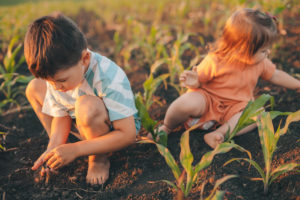
We know that there are many links between the microorganisms that live within us and our health. And these connections continue to emerge through scientific research in real-time! Indeed, the science is still unfolding. Even so, it is clear that our surroundings can impact the diversity of our microbiome and the robustness of our immune system.
Get More Good Bacteria Daily with Probiotics!
Are you and your family exposed to enough beneficial bacteria every day? You can be sure you and your loved ones get a high-quality, ultra-concentrated daily dose of good bacteria with Flourish living probiotics by Entegro Health. Research suggests probiotics may strengthen the immune system, support brain health, improve digestion, promote healthy skin, benefit oral health, relieve gas and bloating, and so much more. 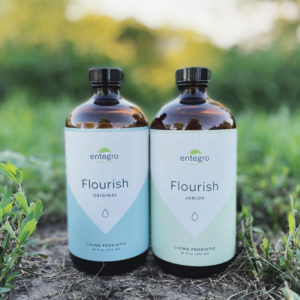
The content in this post is not intended to be professional medical advice, diagnosis, or treatment. Always seek the advice of your physician or other qualified health providers with any questions you may have regarding a medical condition.
Written by Kelsy Armstrong, Entegro Health
Works Cited:
- Castaneda, R., Schroeder, M. “Could Getting Dirty and Being Exposed to Germs Boost Your Health? Are Allergies and Asthma the Result of Being Too Clean?” US News, Wellness, Sept. 2019. https://health.usnews.com/wellness/articles/hygiene-hypothesis-could-more-dirt-and-germs-boost-your-health.
- Haahtela, T. “A Biodiversity Hypothesis.” Allergy. 2019; 74: 1445– 1456. https://doi.org/10.1111/all.13763
- Hale, Tom. “Playing in a Natural Environment Boosts a Kid’s Immune System Within a Month.” Health, Oct. 2020. https://www.iflscience.com/playing-in-a-natural-environment-boosts-kids-immune-system-within-a-month-57513.
- Jhun, I., Phipatanakul, W. “Early Exposure to Dogs and Farm Animals Reduces Risk of Childhood Asthma.” Evid Based Med, vol. 21, no. 2, Apr. 2016, pp. 80. https://www.ncbi.nlm.nih.gov/pmc/articles/PMC4805472/.
- Sobko, T., et al. “Impact of Outdoor Nature-Related Activities on Gut Microbiota, Fecal Serotonin, and Perceived Stress in Preschool Children: The Play and Grow Randomized Controlled Trial.” Sci Rep, vol. 10, 2020. https://doi.org/10.1038/s41598-020-78642-2.
- Strachan, D. “Family Size, Infection and Atopy: The First Decade of the ‘Hygiene Hypothesis.’” Thorax, vol. 55, Aug. 2000. https://www.ncbi.nlm.nih.gov/pmc/articles/PMC1765943/.
- Sweet, Joni. “How Your Kid’s Microbiome Can Be Affected When They Play Outside.” Healthline, Health News, Nov. 2020. https://www.healthline.com/health-news/how-your-kids-microbiome-can-be-affected-when-they-play-outside.

 New customers! Get 11% OFF your first Flourish order with Code FRESHSTART11
New customers! Get 11% OFF your first Flourish order with Code FRESHSTART11